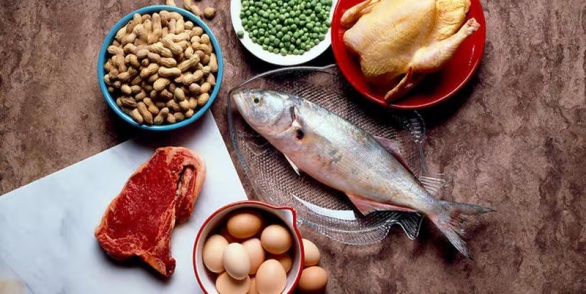Breaking Down Weight Loss Myths
In fitness and health, misconceptions about weight loss are rampant. These myths can often hinder individuals from achieving their weight loss goals effectively. This comprehensive guide addresses common weight loss misconceptions, debunks dieting myths, and reveals the truth about losing weight.

1. Myth: Outrageous Eating regimens Lead to Feasible Weight reduction
Rude awakening: Outrageous weight control plans, frequently described by extreme caloric limitation or end-of-whole nutrition types, are not manageable in the long haul. They can prompt healthful inadequacies and are frequently trailed by weight recovery.
Solid Other options: A decent eating regimen that incorporates various supplements is more viable for maintainable weight reduction. Control, as opposed to end, ought to be the core value.
2. Myth: Certain Food Sources Can Consume Fat
Exposing the Legend: There is a misguided judgment that specific food sources like grapefruit, green tea, or hot peppers can consume fat. While certain food varieties might minorly affect digestion, no food can straightforwardly consume fat. Getting a handle on metabolism: An even eating routine and customary activity are the best ways of expanding digestion and advancing fat misfortune.
3. Myth: Skipping Feasts Helps in Weight Reduction
Reality regarding Feast Skipping: Skipping dinners, particularly breakfast, is frequently accepted to help with weight reduction. In any case, this can prompt expanded hunger later in the day and may bring about gorging. Reliable Dinner Examples: Eating steady, adjusted feasts manages glucose levels and controls cravings, which is more gainful for weight reduction.
4. Myth: Starches Are the Adversary
Carbs and Weight Reduction: In dieting, carbohydrates are frequently denigrated. Mind-boggling sugars like whole grains are fundamental for a sound eating regimen and can support weight reduction. Picking the Right Carbs: Center around consuming high-fiber, natural carbs that give energy and keep you full longer.
5. Myth: Faster Outcomes are Always Preferable to Steady Weight Loss:
Fast weight reduction can be engaging. However, it's frequently impractical and can be unfavorable to your wellbeing. Slow, reliable weight reduction is bound to bring about long-haul achievement. Setting Reasonable Assumptions: Hold back nothing misfortune, around 1-2 pounds each week, which is more secure and economical.
6. Myth: Enhancements Can Supplant Diet and Exercise
Supplements versus Solid Way of Life: There's a typical conviction that weight reduction enhancements can substitute the requirement for a fair eating routine and ordinary activity. Most enhancements must be deductively shown to be compelling and can make side impacts.
Supplements' Role: Enhancements should be utilized to supplement a sound eating regimen and workout daily schedule, not supplant.
7. Myth: Only practice Is Enough for Weight reduction
Exercise and Diet Blend: While practice is a critical part of a weight-reduction plan, it should be joined with a solid eating regimen for powerful outcomes. Only practice is frequently lacking for colossal weight reduction. Comprehensive Methodology: The most effective weight-loss approach combines dietary changes, regular physical activity, and lifestyle changes.
8. Myth: Eating Late Around Evening Time Causes Weight Gain
Truth About Evening Time Eating: The fantasy that eating late during the evening prompts weight gain originates from the possibility that dinners consumed during the evening are not used productively. Weight gain, on the other hand, is primarily influenced by total calorie intake rather than timing. Center around Generally Caloric Equilibrium: Instead of focusing on feast timing, center around keeping a reasonable caloric admission over the day. Eating around in the evening time is just dangerous, assuming it prompts an abundance of calorie utilization.
9. Myth: Without Fat and Low-Fat Food Sources, Assurance of Weight Reduction
Confusion of Without Fat Items: Sans-fat and low-fat items are often seen as programmed solid decisions for weight reduction. Be that as it may, these items can be high in sugars and added substances, which can be counterproductive. Grasping Solid Fats: Consolidating solid fats in your eating regimen is fundamental for supplement assimilation and satiety. Food varieties like avocados, nuts, and olive oil are nutritious and can be essential for a fair weight reduction diet.
10. Myth: You Should Feel Hungry to Get in Shape
Yearning and Weight Reduction: A typical misinterpretation is that feeling hungry is fundamental to getting fit. Overeating and a slowed metabolism may result from persistent hunger. Eating for Satiety: Center around eating supplement thick food varieties that advance satiety. High-fiber food varieties, lean proteins, and sound fats are vital to feeling whole and invigorated without gorging.

11. Myth: All Calories Are Made Equivalent
Nature of Calories Matters: The idea that all calories affect weight loss in the same way ignores the quality of the food. Five hundred calories of vegetables and inclined protein contrastingly affect the body more than 500 calories of high sugar handled food varieties.
Supplement Thick Food varieties for Weight Reduction: Pick food varieties that are low in calories and high in supplements. Supplement thick food varieties add to significant wellbeing and can support more successful weight reduction.
12. Myth: Weight Reduction Is Straight and Reliable
The Truth of Weight Reduction Progress: Many individuals accept that weight reduction should be a consistent descending line. Weight reduction frequently includes variances and levels. Tolerance and Industriousness: Comprehend that weight reduction is an excursion with high and low points. Persistence, perseverance, and steady, solid propensities are vital to long-haul achievement.
13. Myth: Extreme Activity Is Compulsory for Weight Reduction
Job of Moderate Activity: While extreme activity can be helpful, it's not compulsory for weight reduction. Moderate exercises like energetic strolling can likewise be viable when combined with dietary changes.
Conclusion
Separating these normal weight reduction fantasies is essential for anybody hoping to get fitter and more reasonable. Understanding the truth behind these misguided judgments can engage people to make educated, sound decisions in their weight reduction venture. Keep in mind a reasonable methodology incorporating a solid eating routine and standard activity.





